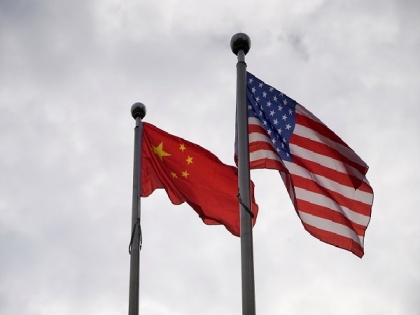China trying to grow its military and economic presence in Latin America
By ANI | Published: March 17, 2022 04:16 AM2022-03-17T04:16:19+5:302022-03-17T04:25:03+5:30
Amid the ongoing conflict in Ukraine and the resulting tensions between Russia and the US, Chinese attempts to increase their presence in Latin America both militarily and economically is an emerging cause for concern, an article in the Foreign Policy Magazine said on Monday.

China trying to grow its military and economic presence in Latin America
Amid the ongoing conflict in Ukraine and the resulting tensions between Russia and the US, Chinese attempts to increase their presence in Latin America both militarily and economically is an emerging cause for concern, an article in the Foreign Policy Magazine said on Monday.
The People's Liberation Army (PLA) has been strengthening its military-to-military relations within Latin America and the Caribbean in recent decades. Since the early 2000s, senior PLA leaders have conducted more than 200 visits to the region to meet their counterparts, the article said, adding that the PLA Navy has also visited several ports in the region, some as close to the United States as Cuba.
This burgeoning military relationship will likely deepen as China seeks more ways to project its power globally, the article went on to say, citing, the 2022-24 joint action plan between China and the Community of Latin American and Caribbean States (CELAC) which stipulates that the defence forum established between the two will continue to deepen cooperation in fighting transnational organized crime, nuclear proliferation, and violent extremism.
The increasing military presence of China near the US shores will also put China in a position to threaten the US with the deployment of troops in nearby countries like Cuba and other Latin American countries if the Taiwan issue aggravates at any time in the future, the article said.
The article also talked about China's economic outreach in the region led by the Belt and Road Initiative (BRI). Twenty-one Latin American and Caribbean countries have now joined the BRI, according to the Congressional Research Service, including Argentina, the most recent signatory, and the largest economy of the group, the article said.
The article went on to talk about the pattern of China using seemingly innocuous commercial interests for military purposes, citing recent developments in the Middle East and Africa.
In one instance, Chinese shipping conglomerate Cosco built and now operates a commercial container terminal in the port of Khalifa, about 50 miles north of Abu Dhabi, to facilitate these commercial ties.
However, the Wall Street Journal reported last November that U.S. intelligence agencies had detected a large excavation site at the port, which they suspected of having military purposes, the article said.
In another instance in December 2021, the Journal reported that China sought to establish its first permanent military presence on the Atlantic Ocean, most likely in Equatorial Guinea at the port of Bata, a deep-water commercial port on the Gulf of Guinea built and developed by two Chinese state-owned companies, the China Communications Construction Co. and the China Road and Bridge Corp.
The article said that the two events are part of a disturbing pattern, whereby China has attempted to expand infrastructure projects--some run under the BRI--beyond their original purpose.
Moreover, in the past two decades, Chinese companies have built or are planning to build 150 transportation infrastructure projects--and dozens of them have port facilities or expansion elements.
The article went on to raise concerns about the lack of transparency of Chinese contracts with sometimes the governments being unaware of the potential dual-use military capacity of the commercial projects they sign up for as was the case with UAE.
The best way to counter China's growing commercial and military influence in the region is for the US to help build regional capacity and domestic institutions that can ward off the most corrosive elements of Chinese engagement, the article said, calling for further infrastructure financing initiatives in the region together with security partnerships.
( With inputs from ANI )
Disclaimer: This post has been auto-published from an agency feed without any modifications to the text and has not been reviewed by an editor
Open in app